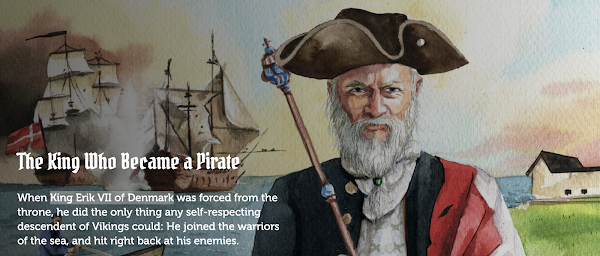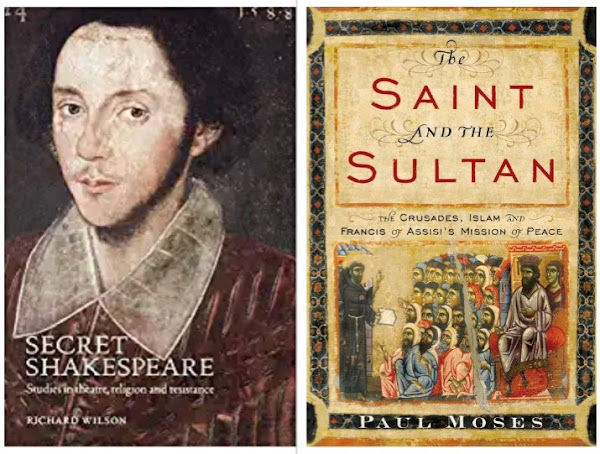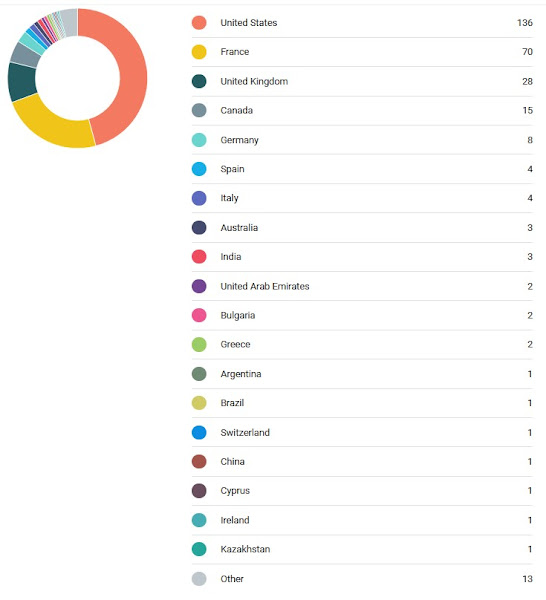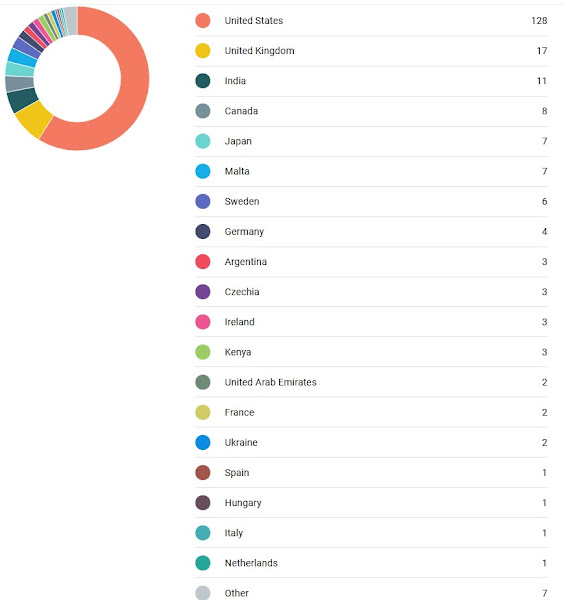Erik VII of Denmark, Hamlet, and Piracy

Many people who study Hamlet —if they dig into the history and sources at all—may only learn of the 12th century Amleth tale recorded in the 13th century by Saxo Grammaticus, and its later incarnation in Belleforest. They may also note the fact that James VI and I of Scotland and England married Anne of Denmark in 1589. For many readers of the play, that is sufficient historical background. An April 2020 story posted at Narratively by Anja Klemp Vilgaard tells of a Danish King Erik VII who turned to piracy to take back his throne, which sounds a bit like Hamlet returning from his sea voyage with the help of pirates. https://narratively.com/the-king-who-became-a-pirate/ Eric VII of Denmark (c.1381–1459) was also Eric III of Norway, and Eric XIII of Sweden, with a rule in all three countries that overlapped, and was known as Eric of Pomerania, as noted in various sources . Erik VII never got his thrones back. He had married Philippa of England, daughter of Henry IV ("Boll






